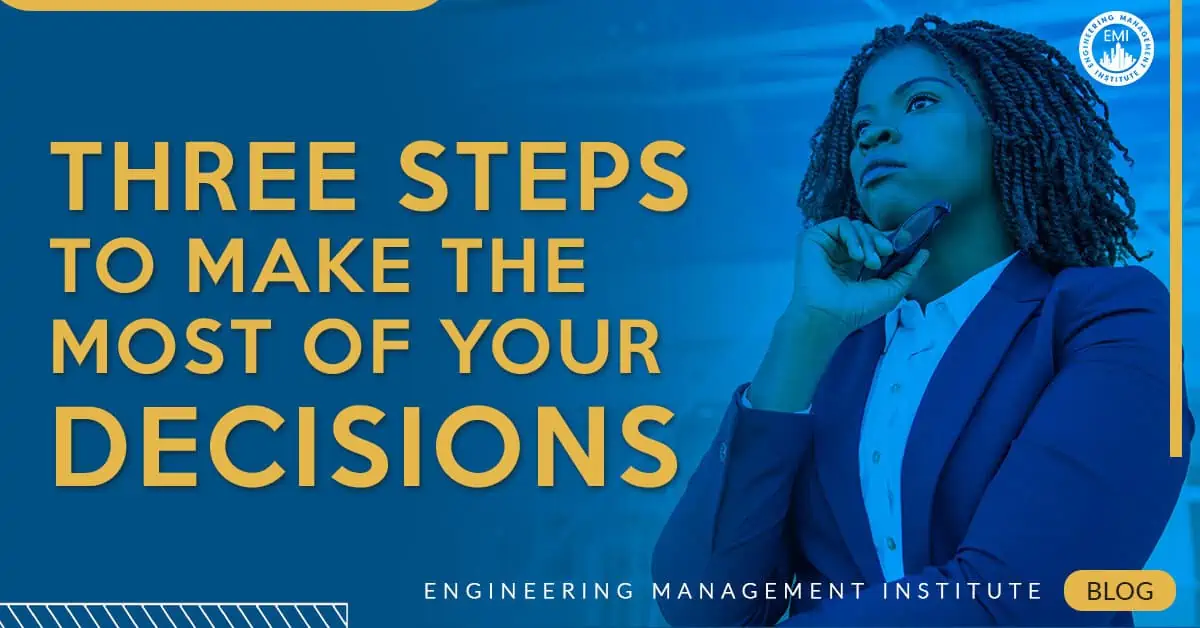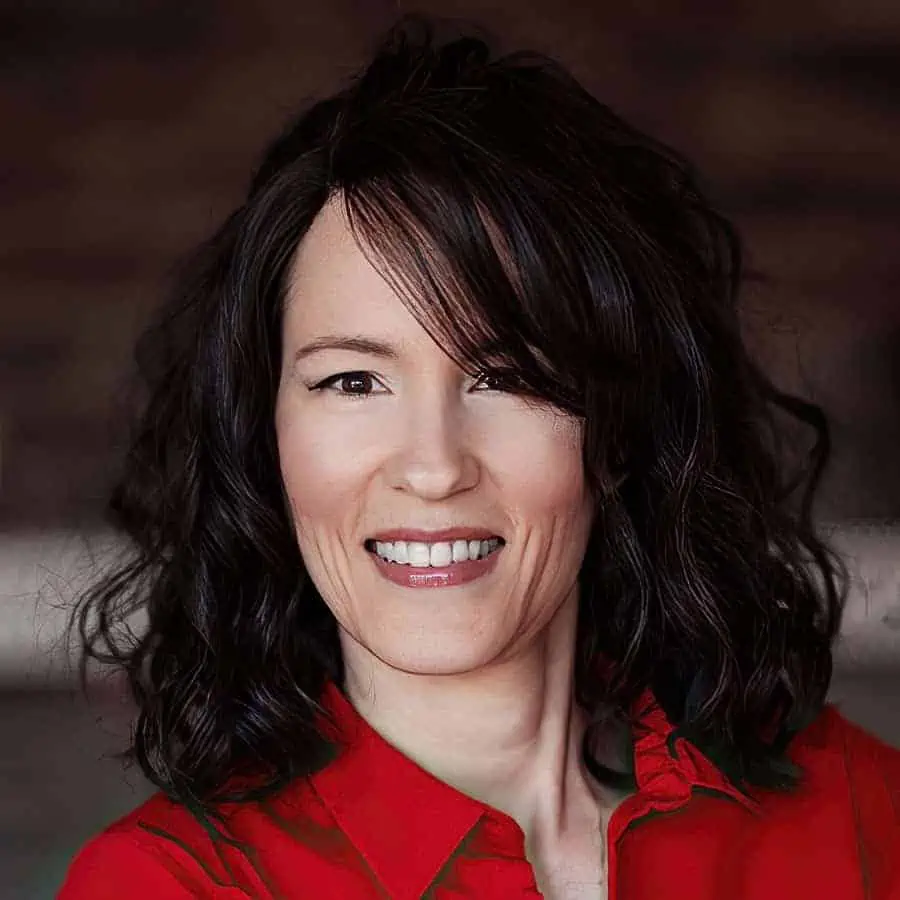This is a guest blog by Gina Covarrubias

1. Commitment vs. Giving Up
Sadly, we sit all too often in a state of doubt, self-defeat, or regret after making a decision. It is so tempting to think, “Oh no, was that the right decision? What if I made the wrong choice, etc.?” The agonies that come along with a what-if mentality can leave your self-esteem lacking and your energy depleted.
I’d like to offer a more useful three-step approach you can apply when it comes to your decision-making skills.
Step One: Commit
The practice of committing to your decision is both mental and physical:
- Mental Commitment: Includes a mindset focused on the future (not the past) and removal of futile thoughts, such as “what-if, FOMO, coulda woulda shoulda, etc.”
- Physical Commitment: Act and behave in ways that support the best outcomes for your decision. Live your decision, breathe it, embrace it.
Commitment to your decision means you are all-in and you will do what it takes within your scope to create the best outcomes. Easier said than done, though! No doubt, it can be difficult to embrace and follow through with your decision when things get tough.
But tough times present a moment of truth for all of us: Can we continue our commitment and overcome obstacles as if it’s supposed to happen that way, or give up and move on?
After you have committed 100% to your decision, you are ready for step two.
2. Ownership vs. Blame
Step Two: Ownership
I have some wonderful news to share about decision-making: you win either way.
If a resulting outcome works in your favor, you can apply it as a lesson for future reference. Which is great!
Unfortunately, not all decisions create the ideal outcomes we seek. That is perfectly OK, and, in fact, that is how we learn! If a resulting outcome is not ideal, you still walk away with knowledge that you wouldn’t otherwise have known.
Sometimes, it is just as important to know what doesn’t work as it is to know what does. If you can work to embrace all outcomes of your decision, whether good or bad, then your decision-making anxieties start to disappear.
In other words, learn to take ownership over your decisions.
When you choose to own your decisions, it means you take full accountability for the journey and for the outcomes. Again, easier said than done, as it may be easy to blame circumstances, policies, or other people during rough patches.
Ownership also includes extracting as much knowledge as you can, despite prevailing outcomes. This knowledge should be filed away in your memory to assist with future decisions.
Steps one and two, if successfully practiced, set you up for the most important feature of decision-making.
3. Transformation
Step Three: Transformation
I’d like to pose a thought experiment. Can you possibly view decisions as neither good nor bad, as neither right nor wrong? It might be tough at first, as we live in a society that teaches us that we ought to make the “best” decisions!
Decisions are not necessarily about getting the outcomes you want. On a much more profound level, decisions are about who you become and how you transform yourself during the follow-through.
Therefore, decisions don’t have to be considered good or bad, right or wrong!
My challenge to you is to try and remove the good/bad, right/wrong labels during and after your decision-making process. What you are left with is an unknown, newfound path in the journey of life. The three-step process laid out in this article will help you maximize any decision along your newfound path:
- Commit to your decision by living a life dedicated to your choice.
- Own the road ahead, beating subsequent obstacles and soaking in knowledge along the way.
- Transform your being from a pre-decision state to an upgraded, post-decision state — so you can go through the process all over again!
Therefore, it is not the decision itself that matters nearly as much as what you do with it!
I share a relevant quote by famous author Steven Covey: “I am not a product of my circumstances. I am a product of my decisions.”
About the Author Gina Covarrubias

Gina is the founder of Deliberate Doing, an exclusive STEM coaching service dedicated to helping engineers fix their careers. She solves the common STEM problem: “What should I be doing with my life?” As a former engineer, she identifies with the technical expert who doubts their personal or professional existence.
Gina’s distinctive background blends life coaching expertise with 12+ years engineering/technology experience in the government, academic and corporate environments, all within the aerospace sector.
We would love to hear any questions you might have or stories you might share on the things you do the make the most our of your decisions.
Please leave your comments, feedback or questions in the section below.
To your success,
Anthony Fasano, PE, LEED AP
Engineering Management Institute
Author of Engineer Your Own Success




